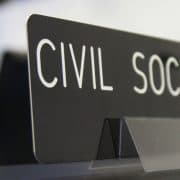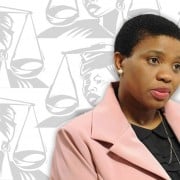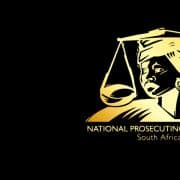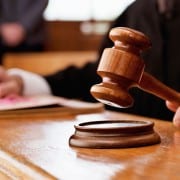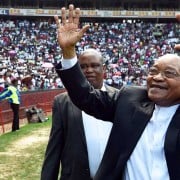|
Getting your Trinity Audio player ready...
|
By Pierre de Vos
First published on Constitutionally Speaking
We all know that when former President Jacob Zuma said many years ago that he wanted his day in court so that he can answer allegations that he is guilty of racketeering, corruption, money laundering and fraud, he was not being honest. Instead his lawyers have done everything they possibly can to prevent Zuma from seeing the inside of a courtroom. They have been able to do this because they are being paid by the state and have unlimited resources to fund their legal shenanigans on behalf of Zuma.
Late last year the Supreme Court of Appeal (SCA) alluded to this fact, and predicted that Zuma’s lawyers will continue to use every trick in the book to protect him from having to answer on charges of racketeering, corruption, money laundering and fraud. In that judgment in the case of Zuma v Democratic Alliance and Others; Acting National Director of Public Prosecutions and Another v Democratic Alliance and Another the SCA confirmed the High Court judgment that the original dropping of charges against Zuma was unlawful and invalid, and stated that:
The current applications are part of the continuing litigation saga that has endured over many years and involved numerous court cases. It is doubtful that a decision in this case will be the end of the continuing contestations concerning the prosecution of Mr Zuma. Minutes into the argument before us counsel for both Mr Zuma and the NPA conceded that the decision to discontinue the prosecution was flawed. Counsel on behalf of Mr Zuma, having made the concession, with the full realisation that the consequence would be that the prosecution of his client would revive, gave notice that Mr Zuma had every intention in the future to continue to use such processes as are available to him to resist prosecution.
It is important to recall what was decided in the High Court and in the SCA regarding Zuma’s prosecution. The High Court in Democratic Alliance v Acting National Director of Public Prosecutions and Others agreed that the original dropping of charges against Zuma was unlawful and invalid. But it went further. It held that this means the original decision to charge Zuma revives and that the NPA now had a legal duty to charge Zuma. The pivotal part of the judgment reads as follows:
It is thus our view that the envisaged prosecution against Mr Zuma was not tainted by the allegations against Mr McCarthy. Mr Zuma should face the charges as outlined in the indictment. The respondents further argued that since the charges against Mr Zuma were formally withdrawn in court on 8 April 2009 after Mr Mpshe decided to discontinue the prosecution the order sought in the notice of motion may be of no consequence. We are constrained to state that said technical argument was not raised in the papers and it cannot render the order we are to make herein inept and ineffective.
On appeal before the SCA, Zuma’s lawyers conceded (after nine years of arguing the opposite) that the dropping of charges against Zuma was unlawful and invalid. But even after making this concession, Zuma’s lawyers tried to argue that the High Court went too far when it said that “Mr Zuma should face the charges as outlined in the indictment.” According to Zuma’s lawyers, the NPA had to decide afresh whether to charge Zuma or not.
This argument was dismissed by the SCA, who confirmed the High Court judgment that the original decision to charge Zuma revived and by implication that the NPA now had a duty to charge Zuma. In another pivotal passage from the SCA judgment the court held that:
Initially, counsel on behalf of the NPA argued that the statement by the court below, that Mr Zuma should now face the charges set out in the indictment offended against the doctrine of the separation of powers. When it was put to him, that in the event of a finding that the decision to discontinue the prosecution was liable to be set aside, the ineluctable consequence was that the decision to prosecute made by Mr Mpshe on 29 November 2007 was revived, he was constrained to concede that this was so.
The SCA then dismissed the appeal, so the High Court judgment stands. All this means that there is now an undisputed statement from the court that Zuma should face the charges as outlined in the indictment. But despite this pronouncement by the court, the national director of public prosecutions (NDPP) inexplicably agreed to entertain further representations from Zuma and his lawyers, ostensibly so that he would be able to consider afresh whether to drop the charges against Zuma.
There are two reasons why the NDPP should never have agreed to do this. First, section 179(5)(d) of the Constitution (read with section 22(2)(c) of the National Prosecuting Authority Act) states that the NDPP may review a decision to prosecute or not to prosecute after consulting with, among others, the accused. This is a discretion in the hands of the NDPP. He may exercise it, or he may decline to do so. (The same applies to a discretion to consider representations exercised under section 179(2)).
This means like any other accused person Zuma did not have a right to make representations to the NDPP and to have those submissions considered by him. The NDPP in effect did Zuma a special favour by inviting him to make such representations, even though Zuma and his lawyers have already evaded prosecution for more than nine years by using (or abusing) the legal system.
But, second, in this case the NDPP could not exercise his discretion as the court has already stated that Zuma should face the charges as outlined in the indictment. One could quibble with the court about this statement, but as an appeal against it has been dismissed the statement stands. By entertaining the submissions from Zuma, the NDPP was in effect flouting the High Court judgment.
In any event, there could not possibly have been any legal basis for the NDPP to drop the charges: any decision on this was required to be taken by a court of law, not by the NDPP. As the SCA stated very clearly in its judgment:
It was contended that, in those circumstances [of allegations of unfairness or abuse of process], it ought to be left to the discretion of the prosecuting authority to decide whether to continue with the prosecution. I disagree. It is incumbent on prosecutors to disclose to a court any fact which, in their view, may impact negatively on the prosecution and in favour of the accused. This is in line with constitutional values and the provisions of the NPA Act. It is in the interest of the NPA, accused persons and the public’s confidence in the administration of justice, that decisions concerning allegations of abuse of process be made by a trial court.
It is for all these reasons that it would be an outrageous and unethical abuse of legal process for Zuma and his lawyers to approach a court ostensibly to have the decision by Shaun Abrahams reviewed not to exercise a discretion which he has no duty to exercise (and which he was in effect told by the court not to exercise).
In short, there was no legal duty on Abrahams in this case to consider Zuma’s representations. In fact, it seems Abrahams flouted the instruction of the court to charge Zuma when he extended this special favour to Zuma to again consider representations on the matter. It would be truly bizarre for Hulley and Kemp to approach the court to have this failure to make a decision (which Abrahams had no right to make) reviewed and set aside. Given that the favour seems to have been extended in contravention of a court judgment, the absurdity of such an argument becomes even more apparent.
Lawyers are entitled to use every legal avenue to defend their client, as long as they do so in an ethically acceptable manner. In cases like this – where lawyers are being paid by the state and were told that they would be paid no matter what frivolous or bizarre application they bring – they may be tempted to abuse the legal process in an attempt indefinitely to delay the criminal trial of their client.
But as the court has already stated that their client should face the charges (a statement which still stands and have not been challenged), attempts by Zuma’s lawyers to circumvent the court judgment by trying to have a discretionary exercise of power reviewed, abuses the process and is unethical.
But perhaps it would not be entirely surprising if Hulley and Kemp bring such an application. After all, Hulley almost certainly committed a criminal offense when he took possession of the spy tapes, while Kemp is the person who slut-shamed Fezekile Ntsukela Kuzwayo during Jacob Zuma’s rape trial.

